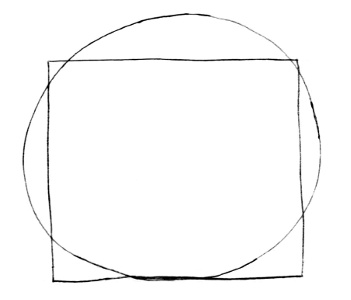Consistency

A year ago, I wrote Mood days, about the benefits of letting your plans adapt to the mood of the day. I've since written some fairly contradictory things, including Output/input, where I argued that it's your actions that most strongly dictate your mood (and your future actions). The truth is that I am somewhat conflicted about these two ideas, which both seem true to me. I think the key is how much to expect and value consistency.
One of my favourite articles is a piece by Venkatesh Rao about legibility, the idea that certain models are considered preferable because they are easier to understand and manage, even if they don't accurately reflect the underlying reality. In What a piece of work, I argued that we shouldn't think of ourselves as divine messengers of logic and reason, but rather apes with shoes who have to work exceptionally hard to achieve anything approaching effectiveness. That is, I think our underlying reality is the monkey brain, and the model is our plans and systems.
In that sense, I think this tension of legibility is really the core problem. I have come to immensely value habits and stability as a way to overcome monkey-brain problems. I know that some days I won't feel like writing, or programming, or doing anything useful, and I know that at those times my habits can act as a kind of Higher Power, something that you can trust when you don't trust yourself. And yet, there is some inevitable sense in which by forcing yourself to accommodate to habits and consistency, you are ignoring the underlying reality in favour of legibility.
In The stability tradeoff, I wrote that instability is also a fundamental part of creativity. Valve Software, for example, is notoriously lacking in structure. The company org chart is either a flat line or a giant spaghetti mess depending on who you ask. Employees get to choose what to work on based on what they feel like at the time, their desks even have wheels so as to encourage frequent movement. Instability! Chaos! Madness! Yes, but also creativity. The company fails in predictable ways because of their lack of structure, but also succeeds spectacularly: 4 of the top 10 games on Metacritic were developed by Valve, including number 1.
So do you follow Valve's lead and make your system the most humane, the most reflective of the underlying chaos of creativity? Or do you instead try to adapt yourself to the system, try to be more consistent, more predictable, more manageable? In Creation and creativity, I argued that you need both to some extent, but that doesn't necessarily help with any particular decision. You're feeling scattered today, do you fight to stay focused or just go with it?
The truth is I don't know yet. The best I can say is that consistency has helped me, and that right now I would try to shape the mood to the actions rather than the actions to the mood. That said, it could change. Maybe the whole thing is one big simultaneous equation where you need to optimise for both at once. I'm not sure, but I am hopeful that there is an answer out there. Finding it would be a significant contribution to both productivity and creativity.